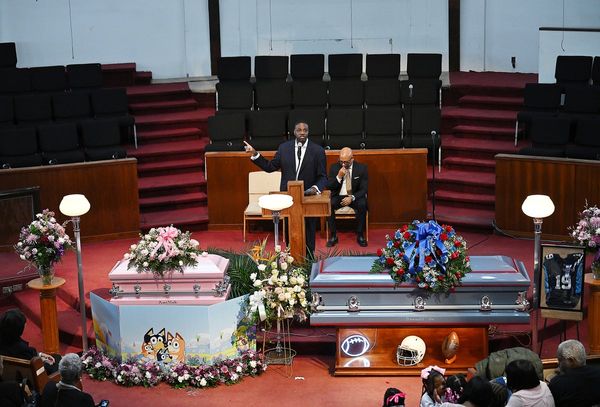More than 100 Ukrainian refugees have arrived in Adelaide, six weeks after the Russian invasion of their homeland began.
Aliona King from Adelaide's SLAVA Ukrainian Cultural Centre said the new arrivals comprise about 30 family groups of mostly women, children, and the elderly – after Ukrainian men aged 18 to 60 were banned from leaving the country.
Ms King said most of the arrivals came to Adelaide with "just the clothes they have on them, and a backpack".
"It's really, really stressful obviously for them. Some of them basically walked out of their house with documents and a backpack and anything [their] kids need … and that's all, that's all they had with them," she said.
Around 5,000 Ukrainians have been granted visas to travel to Australia, including skilled migrant and family reunion visas, as well as student and tourist visas.
Once in Australia, they will be eligible to apply for temporary humanitarian visas, which provide more certainty.
'Traumatic' journey to Adelaide
Many of those fleeing Ukraine have been welcomed in neighbouring Poland and Romania before making their way to Australia, but the process of exiting the country has been arduous.
"To cross the border for some of them was a very traumatic time," Ms King said.
Ms King said some of the arrivals had been supported by family members already living in Australia, but resources were stretched.
"The majority of people inviting their families to come to Australia are migrants themselves, so they might be living in rental accommodation or small houses," she said.
"Imagine a family of eight coming to live with you, we have one family here with three adults and four children. It's a huge cost for food, for transport.
"We are still waiting for the government to finalise the process for temporary protection visas, because people are arriving on the tourist visas which don't permit them to get access to Medicare or any government financial support."
Calls for donations
Ms King said there had already been an outpouring of support from the South Australian community, but more donations were needed.
Adelaide's Welcoming Centre has already provided sim cards for new arrivals, while Baptist Care has organised food packages, and "welcoming packs" have been provided by the Australian Refugee Association.
Other donations have come in the form of supermarket and department store vouchers.
Founder of local charity Treasure Boxes, Rikki Cooke, is appealing for donations of school essentials, baby and children's clothing, and household items.
"We are providing the basic essentials for families including clothing and shoes, nappies and toiletries, toys and books, and bedding — however the costs of providing this service is coming directly from our crisis relief fund," she said.
The charity also provided supplies for refugee families from Afghanistan, who arrived in Adelaide after the Taliban insurgence last year.
"We are particularly in need of cots, strollers and toddler beds."
Ms Cooke urged people looking to donate goods to contact Treasure Boxes for a comprehensive list of items of need.







